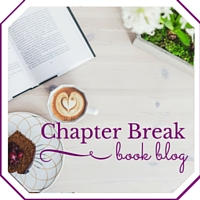Vagabonder by R. T. Coleman
Science Fiction/Fantasy
Date Published: 09-20-2022
Publisher: Aurelia Leo
Humans have always feared Caen’s kind.
Survivors of a mysterious virus, Ruĝa Morto, that killed 80% of Earth’s population two centuries ago, they have endured enslavement as Neurologically Compromised Individuals, or NiCIes, owned by OnyxCorp. Now, in 2261, Caen begins a perilous journey to seek the Vagabonders, the
original moon colonists, whom many believe hold the key to freeing his people.
He knows he is hunted. He expects death at every turn.
But he doesn’t anticipate meeting Dr. Ligeia Obumbwe, a human biogeneticist desperate to protect her brother Finn, yet another victim of the endemic virus. When OnyxCorp promises to keep Finn safe in exchange for her work in their lunar lab, she accepts despite her increasing unease regarding the Corporation’s motives.
Ligeia and Caen become unlikely partners in a dangerous quest to reach the Vine, the space elevator that is the first step in their journey to the moon.
What they find along the way could help them bring OnyxCorp to its knees…or destroy everything they love.
Guest post: 10 Books That Influenced Me and My Writing
Reading is essential to good writing. I can’t speak for all authors, but I imagine most would agree that if you want to be a good writer, you need to read a lot, and read widely. Fiction, non-fiction, short stories, novels, scientific articles, biography, blogs, news articles: They all help you develop and refine your own unique voice.
I love reading, and it’s almost impossible for me to pin down a short list of my favorite books. How does one choose a favorite among one’s beloved friends? I can say that a few books played a role in the voice I developed for my debut science fiction novel Vagabonder. Here they are, in no particular order.
- The Awakening, Kate Chopin – I’ve told more than one person that The Awakening changed my life. It so accurately captures the experience of women living in the patriarchal South, a society in which we are expected to conform while forsaking our own desires for freedom and independence. Chopin’s lyrical narrative style influenced me heavily as a writer, particularly her ability to capture her main character’s ever-changing emotions as she navigates a world in which she’s seen as an object rather than a real person.
- The Handmaid’s Tale, Margaret Atwood – I can’t credit Atwood enough for influencing me as a speculative science fiction writer. Her style – concise, sparse, even a little detached – is much like my own, and we share some common themes regarding the dangers of authoritarian, totalitarian regimes.
- The Lord of the Rings, J.R.R. Tolkien – I know, pretty cliché for a sci fi/fantasy author, but there’s no denying the influence of this trilogy. Not only is the story itself thrilling and inspiring, but the world-building is almost impossible to believe. Tolkien’s ability to create entire backstories for his characters, including their own unique languages and linguistic registers, is something to which I aspire but never hope to attain. His style, simple but varied, has certainly influenced my own.
- The Diary of Anne Frank, Anne Frank – A librarian recommended that I read this book when I was around 12 or 13, and it too changed my life. Not only did I connect with Anne on a personal level, but her diary influenced me to learn more about the horrors of the Holocaust, a journey that was both enlightening and terrifying. Vagabonder certainly reflects what I learned about humanity’s capacity for cruelty and “othering”.
- The Broken Earth Trilogy, N.K. Jemison – I devoured this series when it came out. I couldn’t get enough of Jemison’s unique use of second person POV, and she inspired me to alternate between a first-person POV with Caen and a third-person POV for the other characters in Vagabonder. Jemison also tackles the same types of issues that interest me, including racism, sexism, climate change, and abuse of power.
- The Dispossessed, Ursula K. Le Guin – Le Guin is one of the smartest political commentators in science fiction. All her books are worth reading, but this one stands out because of its tight structure and organization.
- Neuromancer, William Gibson – One of the earliest works in the cyberpunk genre, Neuromancer greatly influenced how we talk about technology and virtual reality. It’s a sci-fi noir that is confusing and wild and frustrating and incredibly fun, and its fast-paced plot is a foundation for my own writing.
- American Gods, Neil Gaiman – I could list all of Neil Gaiman’s books here, honestly, but American Gods stands out because it’s just so darn good. A blend of fantasy, mythology, and good old Americana, this book baffled and delighted me. The characters that Caen meets on his journey to the Vine in Vagabonder were inspired by Gaiman’s quirky, mysterious cast.
- The Mists of Avalon, Marion Zimmer Bradley – I haven’t dabbled much in historical fantasy, but Bradley’s focus on the female characters in the Arthurian legend, and her reimagining of Morgan le Fay, makes this an enduring favorite. I’ve read it at least four times, and I’ll likely read it again very soon.
- Pride and Prejudice, Jane Austen – Another cliché, I guess, but Ligeia in Vagabonder has a little of Elizabeth Bennet’s sassiness and a lot of her naivete. Besides that, my first love was most definitely Mr. Darcy, followed closely by Aragorn.
Happy reading!
About the Author
R. T. Coleman grew up in Little Rock, Arkansas, where she nurtured a passion for reading and writing while nestled among blankets and pillows in her bedroom closet. Her love of science fiction was born when she saw Star Wars in the theater in 1977. Imagine her disappointment when she realized she could never actually be Princess Leia.
She lives in Springfield, Arkansas, with her partner Joe on their 25-acre farm, where she works as an instructional designer by day and a writer and editor by night. Vagabonder is her debut novel.
Contact Links
Purchase Links
Note: Some posts may contain affiliate links. Should you choose to purchase a product, we will receive a small commission for the sale at no additional cost to you. Chapter Break is a participant in the Amazon Services LLC Associates Program, an affiliate advertising program designed to provide a means for sites to earn advertising fees by advertising and linking to Amazon.com.



